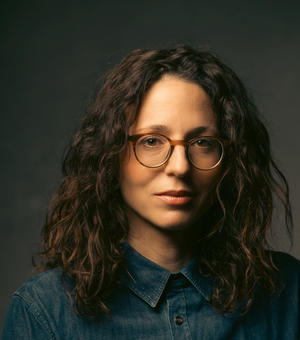Professor Tamara Atkin
All my work is concerned with the material conditions that shape literary production and reception. My first two books—The Drama of Reform (Brepols, 2013) and Reading Drama in Tudor England (2018)—were about the drama written and performed in England before a culture of commercial playgoing was established at the end of the sixteenth century. I have co-edited a collection of essays on dramatic manuscripts—Early English Drama in Manuscript (Brepols, 2019) – and written about the poetry of medieval drama (in The Oxford History of Poetry in English, Vol 3, 2023) and Shakespeare’s medieval inheritance (in The Oxford Handbook of Shakespeare and Authorship, forthcoming).
Alongside my writing about drama, I have published widely on the interactions between manuscript and print, the marketing of early printed books, and various other aspects of the early English book trade. My current book, Reusing Books in Early Modern England, project grows from a Leverhulme-funded Major Research Fellowship and explores the reuse and recycling of old books in early modern England. Assessing the relationship between bibliographic and literary ideas about waste and reuse, it considers the role of old books (both as wasted remnants and second-hand commodities) in early modern culture. Research for this book has taken me to libraries across the UK and the US, and has resulted in several literary discoveries including a manuscript fragment from a lost chanson de geste (see ‘A Fragment of a Lost Chanson de geste’, 2022), a new fragmentary witness to Béroul’s Tristan (see ‘A New Witness to Bèroul’s Tristan’, 2023), as well as manuscript copies of poems associated with the circle of Sir Thomas Wyatt (see ‘A New Witness to Two Tudor Poems’, 2022). My work on fragments has led to collaborations with colleagues at the University of Bristol, the University of Edinburgh, and the University of Georgia, and I am currently working with Dr David Rundle at the University of Kent to identify and analyze a group of manuscript fragments discovered on Guernsey.
My next project will assess the material evidence of the early modern second-hand book trade in England between the Dissolution of the monasteries, when thousands of medieval manuscripts and early printed books entered the commercial book market, and the rise of book auctions in the 1670s, when published sale catalogues changed the ways that old books were bought and sold. By shifting focus away from the activities of the London Stationers’ Company, I hope to shine a light on the trade practices of and relationships between men and women overlooked in standard accounts of the early modern book trade. You can read about some of my preliminary findings in my forthcoming article for The Library (‘The Bodleian Daybook and the Purchase of Second-Hand Books’).
I teach English literature from 1350–1660 (FHS Papers 1, 2, and 3), and have particular interests in premodern drama, book history, and material culture. I currently teach medieval drama on the MSt in English Language and Literature (650–1550). I have supervised graduate students working on a broad range of fifteenth- and sixteenth-century topics including fifteenth-century aureate verse, Henrician court poetics, and the performance of skin on the early modern stage. I always welcome enquiries from potential doctoral students interested in any of the areas of my research.
I currently hold honorary positions at the University of Bristol and Queen Mary University of London, where I held a post between 2008 and 2024. My research as been funded by various prizes and fellowships including a Leverhulme Research Fellowship (2015–2016) and a Leverhulme Major Research Fellowship (2021–2023). You can find me on the Queen’s College Website, X (@tamarajatkin), and BlueSky (@tamarajatkin.bsky.social).




